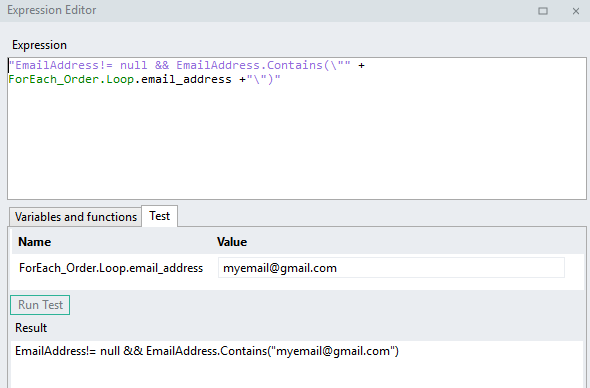Where Filter
The where parameter allows you to filter elements using operators on their properties.
Note:
Even though the where filter supports complex queries we recommend you keep them as simple as possible. Long, complex where queries can cause time outs.
To ensure your calls run efficiently against larger organisations it's a good idea to restrict your queries to simple == operations.
Submit your query as a string value to avoid possible errors, for example:

Examples
Retrieve all Bank Accounts using the GetAccounts function
Type=="BANK"
This would translate to the following URL encoded stringhttps://api.xero.com/api.xro/2.0/Accounts?where=Type%3D%3D%22BANK%22
Retrieve all contacts with specific text in the contact name using the GetContacts function
Name.Contains("Peter")Name.StartsWith("P")Name.EndsWith("r")For optional elements such as email address, it is best that you add a not null at the start of the query. If you don’t include it you will get an exception if any of the optional elements aren’t set. This example is using the GetContacts function.
EmailAddress!=null&&EmailAddress.StartsWith("boom")Retrieve invoices with an invoice date between a date range
Date >= DateTime(2015, 01, 01) && Date < DateTime(2015, 12, 31)
